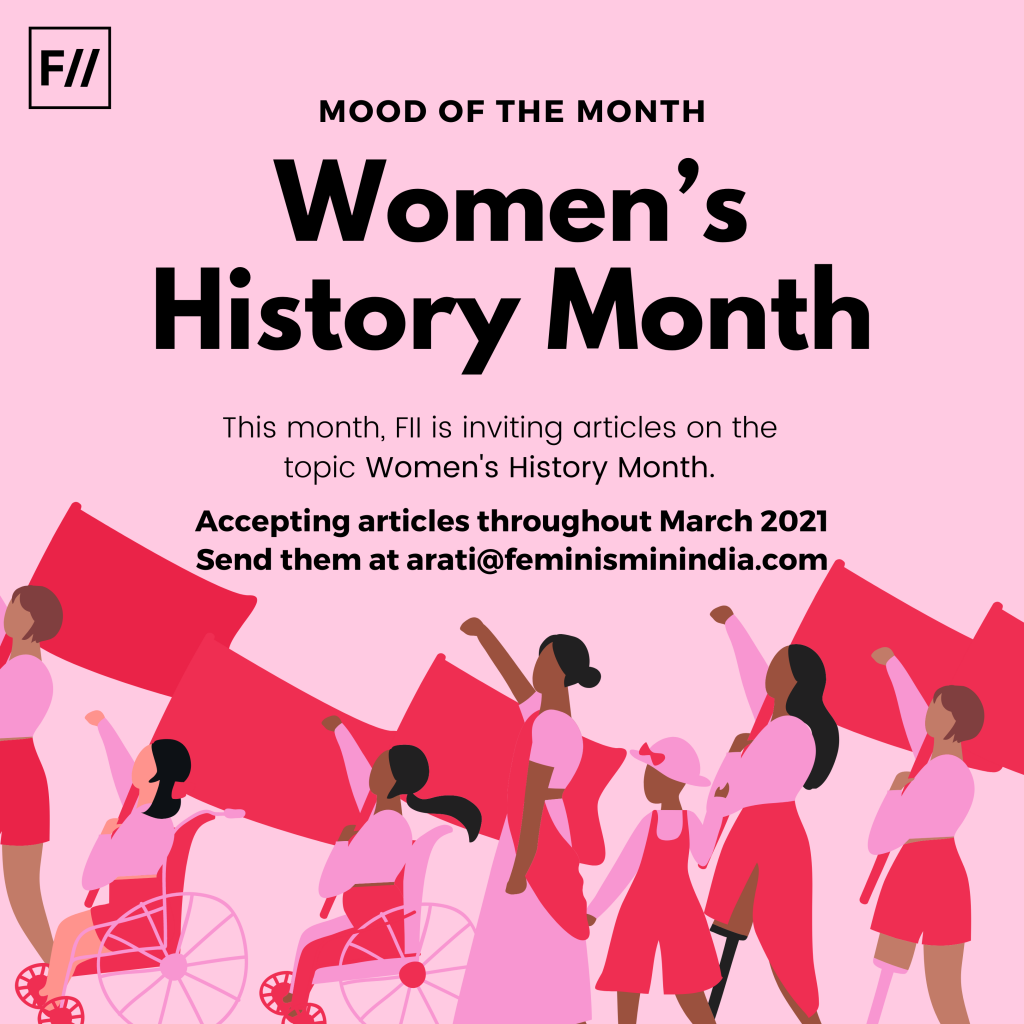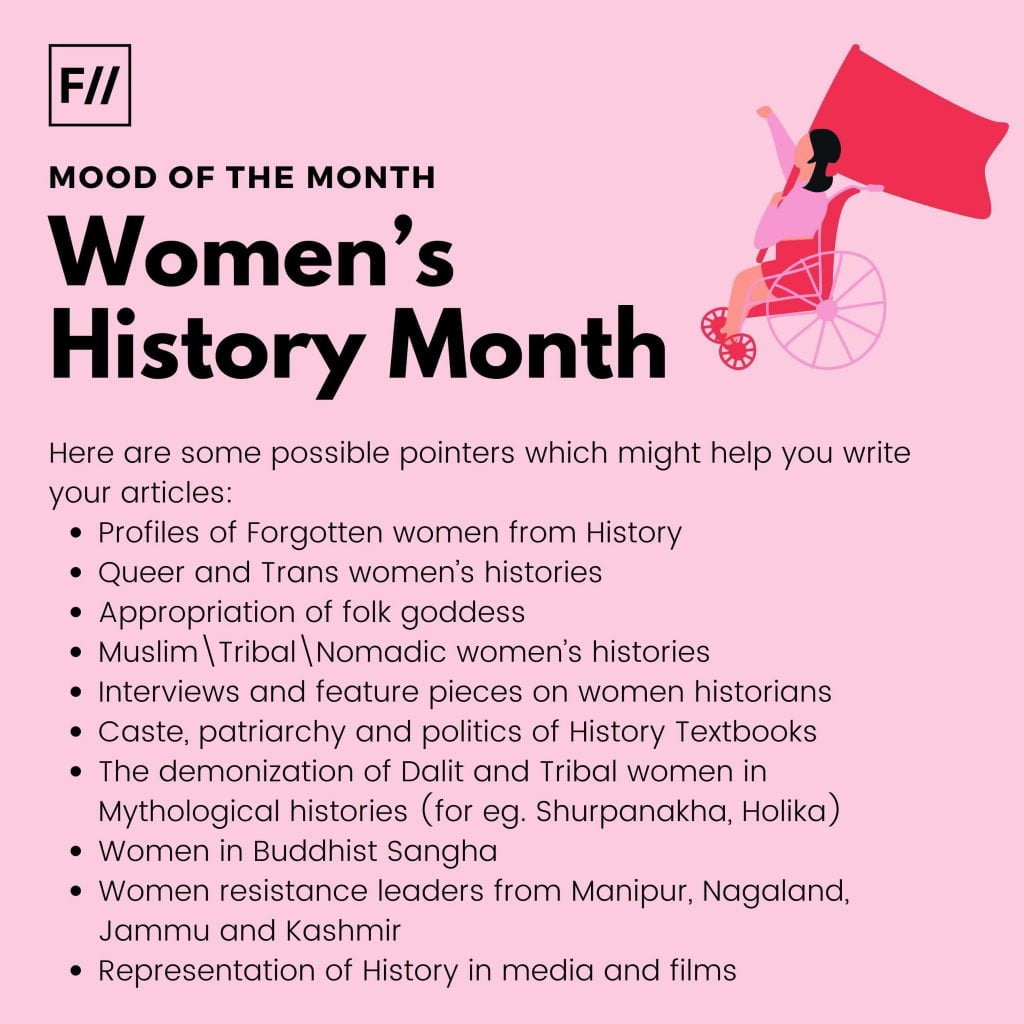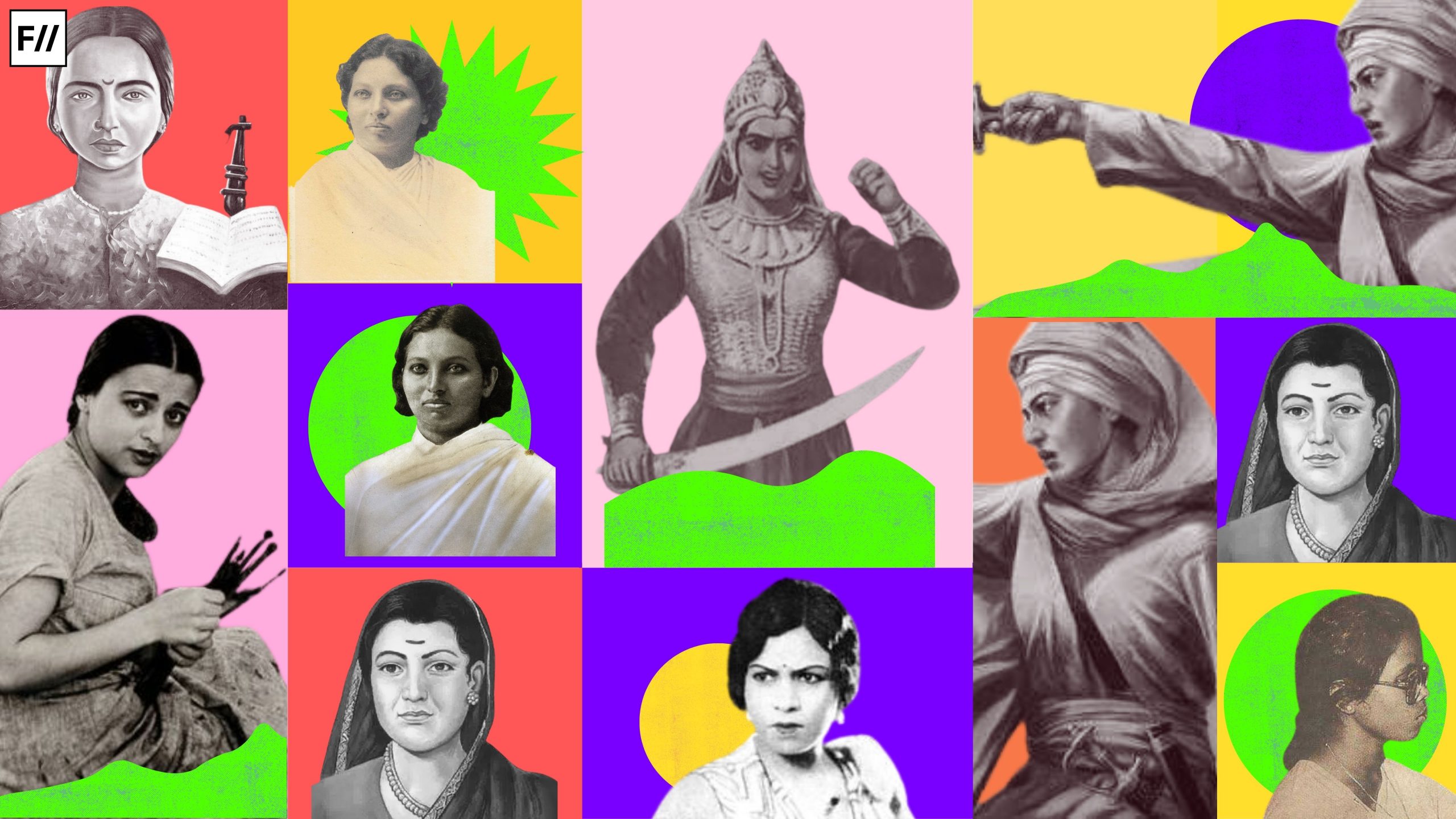In 1995, the United Nations declared March as women’s history month in order to celebrate the contribution and achievements of women in American history. Since then March is celebrated as women’s history all over the world.
Have you ever read the history of cis women and gender minority groups belonging to different regions, castes, tribal and nomadic tribal communities, faiths, sexualities and abilities in your school textbooks or academic books?
However, dominant historians rarely acknowledge the historical contribution of cis women and queer people from different social and regional identities in India. Have you ever read the history of women and gender minority groups belonging to different regions, castes, tribal and nomadic tribal communities, faiths, sexualities and abilities in your school textbooks or academic books? Whatever history of India we have learned in our schools is one in which the protagonist is the King and the narratives are his stories. The history we have learned is concerned only with the rise and fall of dynasties and empires. European scholars discovered India largely through its ancient philosophy and its literature in Sanskrit—a language which was accessible to few oppressor caste people. Cis women, transwomen and queer women of different social and regional identities were not allowed to read and write during Brahminical rule.
Also read: IndianWomenInHistory: Remembering The Untold Legacies of Indian Women

Then who got the opportunity to write our collective histories? If we look at the names of famous historians in India, we will realise that most of them are Brahmin men. For them, the ancient past of India was a glorious time. According to them, the Golden Age existed in India prior to the British rule and the outsiders came and colonised India and looted it. History textbooks rarely told us about Brahmanical patriarchy. They never talked about the history of oppressed people and their struggle to fight against oppression.
When historians like Serena Nanda, Romila Thapar, Urmila Pawar, Saba Mahmood etc started writing different histories which were previously invisiblised, new perspectives came to light.
Kancha Ilaiah rightly says that Brahmanic culture kills the other cultures by denying them what is their due — their history and social visibility which is required for further advancement and evolution. Hence this absence of women’s history from history textbooks is not mere coincidence but it is consciously done to keep the sources of oppression intact. As Dr Ambedkar said, “They cannot make history who forgets history”. Absence of our history is an attempt to make us forget our history.

When historians like Serena Nanda, Romila Thapar, Urmila Pawar, Saba Mahmood etc started writing different histories which were previously invisiblised, new perspectives came to light. The book called ‘We Also Made History’ by Urmila Pawar and Meenakshi Moon is one such milestone in the women’s history of India. The word ‘also’ in the title asserts that regardless of how voices of women belonging to oppressed castes were systematically ignored, they are now claiming their rightful place in the history of India.
Inspired by these historians to reclaim cis women’s, transwomen and queer women’s spaces in History and to challenge the belief that women were historically subordinate to cis men, FII is looking for article submissions on the topic of Women’s Histories for March 2021.
Also read: women’s history month Archives
We have created a list of Indian women who have done ground-breaking work in their respective fields but haven’t received the acknowledgment they deserve. This entire month, we want to profile their life and work through our articles. Additionally, here are some possible pointers which might help you write your articles:
- Profiles of forgotten women from History
- Queer and Trans women’s histories
- Muslim/Tribal/Nomadic women’s histories
- Tribal women’s histories
- Interviews and feature pieces on women historians
- Caste, patriarchy and politics of History textbooks
- The demonisation of Dalit and Tribal women in Mythological histories (for eg. Shurpanakha, Holika)
- Women in Buddhist Sangha
- Women resistance leaders from North-Eastern states and Jammu and Kashmir
- Representation of History in media and films
- Historical judgements and law and policy related to women’s movement
- Appropriation of folk goddess
You can send us your submissions to arati@feminisminindia.com. This list is not exhaustive. Please feel free to write about other topics, which we might have missed listing.
We understand that some of you might be uncomfortable writing about your personal experiences. You can let us know in your submission mail whether you would want to remain Anonymous when we publish your articles.
About the author(s)
Feminism In India is an award-winning digital intersectional feminist media organisation to learn, educate and develop a feminist sensibility and unravel the F-word among the youth in India.




